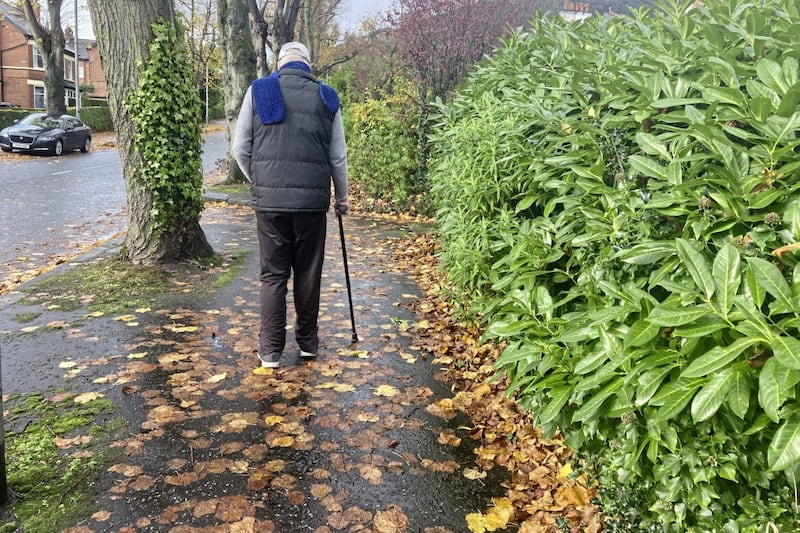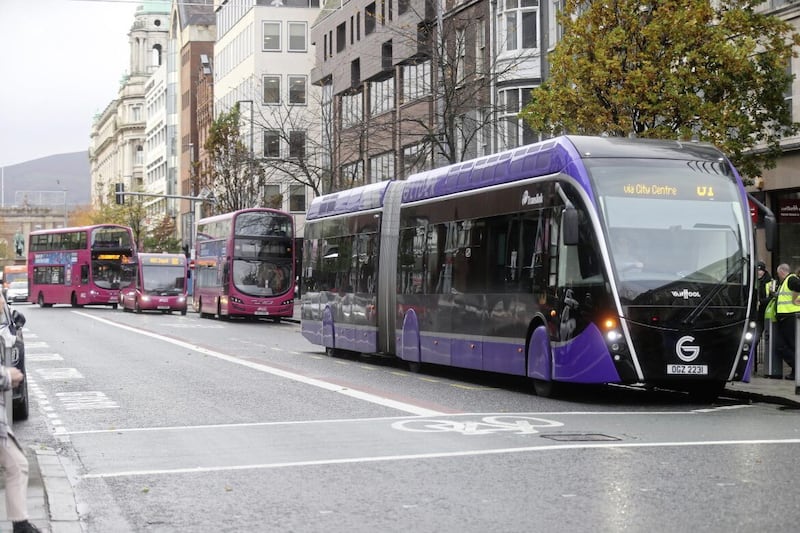THIS time last month, Charlotte Moore was cantering through the wastelands of the Gobi Desert. Not many people can say that, but this was no holiday: it was a serious challenge to raise money for the children of Mongolia who desperately need support and kindness.
This is provided by the Veloo Foundation, which was set up by a couple who moved from Canada to Mongolia's capital Ulaanbaatar, and in the last 10 years have established two kindergarten schools, education for young people, summer camps and a community library, also creating a sewing centre for women.

Every year, Julie and Chelvan Veloo mount the Gobi Gallop, and enthusiasts from all round the world pack a bag and pick a horse. Now that she's back home in Crumlin, Co Antrim, with her husband Nigel, Charlotte can look back at the "madness" she says "took over" when she decided to sign up – she can relax and appreciate what the last number of weeks entailed.
Growing up on a farm, there were always horses around: pulling the plough, a pony to ride and – no surprise – she breeds her own Irish draught horses.
But this was different.
"Despite my life-long love of horse riding and travelling to Mongolia a few days earlier in order to prepare for the start of the Gallop, it was tough going," Charlotte explains.

Read more:
Anne Hailes: Remembering the Crazy World of the legendary Christy Dignam
"I trained on my bicycle, walked for miles and hiked in the Mournes, but the combination of rising every morning at 6.30am, spending all day in a Mongolian type saddle and the extreme heat meant my body didn't react very well – my back and legs felt the strain."
However, Charlotte didn't give up, and completed the 700 kilometres only occasionally resorting to hitching a ride in the support vehicle.
"The vehicle was invaluable, not only to help through painful times, but also because there was a canopy which offered shelter from the sun – in fact, at the height of the heat, we resorted to lying right underneath the wagon!"
CHILD'S PLAY
THE highlight of the trip came with an opportunity to visit the kindergartens and play with the children.
"They were such happy pupils, dressed in vibrant colours and working in a classroom which was filled with fun and energy – such a contrast to the filthy rubbish piled outside the door where they spend time scratching though the dump to find anything that can be sold or used in some way to ease the stress of a nomadic life."
Charlotte also visited local people who were making 'gers', Mongolian for 'dwellings': lightweight felt tents, round so energy can't lurk in corners, and easily assembled and disassembled so families can take them along as they move their cattle to the next pasture.
For every ger sold, the Foundation will donate another to a needy family.
"One lady in our group, an Australian whose house was burnt down during the bush fires and who was living in a container, bought a number to bring home – one for herself and the others for those who also lost their homes.
"When I applied for a place on the expedition I was interviewed, and although Covid put the trip on hold for a while, last September I began fundraising for my travel costs: a participation fee and insurance, amongst many other necessities. I was then required to raise at least £3,500 for the work of the Foundation.
"We were given two small expedition boxes to carry a sleeping bag, pillow, clothing and riding gear, and we had sleeping tents for overnight which were put up by our guides.
"There was also a doctor and a cook, both so important when you are covering 450 miles on horseback in an extreme climate, lying, as the Gobi does, between Russia and China."
Charlotte's worst moments during June included the endless stamina required, sleeping on a thin mat on the ground and no flush toilet until arriving at a camp, where the loo, she said, was a metal seat with no flush, but it had a spectacular view.
There was another highlight too: "At the end of the challenge, we were invited to a specular gala ball in the Ulaanbaatar Palace. Some of the women had dresses especially made by the workers in the sewing centre, I had a jacket made, but in the end decided to wear a sparkly green dress which I smuggled into one of my boxes!
"It was a marvellous experience and, now that I have seen how the children need our support, I'll keep fundraising for them and maybe go on the Gobi Gallop next year – or, on the other hand, I might join the newly established Steel Horse Gallop and take a motorbike!"
Find out more details at Veloo Foundation Charlotte's GG Fundraising Page
IT'S SIMPLY NOT CRICKET

ABOUT 30 years ago, I met a senior government minister's son who was with his father at a reception at Hillsborough Castle. We got talking and the young man told me he was researching misconduct in professional cricket.
I was dubious: surely cricket was whiter than white? In my family, it was all everyone thought of during the summer – my job was to keep my dad's pads pristine white by sponging on Blanko.
In later years I decided to join in and played for the Ulster Ladies team based at Cliftonville Cricket Club. I wasn't any good, but the craic was great facing schoolboy teams and gentlemen's elevens – and then, at inter-provincial level, we played Yorkshire Ladies.
That was the end: two dropped catches and my brother's slow hand-clapping me burst the bubble.
And now we hear that there has been shameful discrimination and very unpleasant goings on on the English cricket pitch, especially attitudes towards women. When I was involved, in general women were only good for making sandwiches and baking cakes for the 'afters', but players were grateful and polite.
However, international women's cricket is becoming more and more popular, and I am quite sure they will not tolerate the men looking down on their talents.









